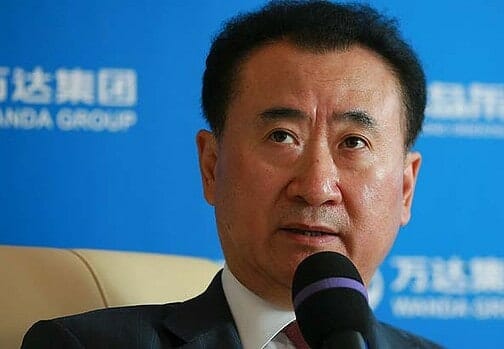The Crown Estate, which manages the Queen of England’s real estate assets, announced late last week that it had joined with an investment-arm of the Chinese government to buy a shopping centre in the UK for £345.5 million ($576.76 million).
The partnership between the Crown Estate and Gingko Tree Investment Ltd, a wholly owned unit of China’s State Administration of Foreign Exchange (SAFE), is the biggest acquisition ever for the Queen’s asset manager, and the latest in a string of deals in Europe for the UK-registered Chinese firm. The investment was revealed in an announcement from the Crown Estate.
The deal for the 560,000 square foot (52,000 square metre) Fosse Park retail development in the city of Leicester shows the key role that government relations are playing in China’s outbound investment wave, as well as rising enthusiasm for recovering European real estate markets.
The joint venture formed by the two companies purchased Fosse Park, which attracts more than eight million shoppers a year, from UK property firm Foyleside. Retailers represented at the centre appear to be distinctly mid-market, including Marks & Spencers, Gap, Clarks, Boots, DFS and Costa Coffee.
China’s Government Investing Actively in Europe
While Chinese real estate developers have gained headlines with plans for splashy projects in cities around the globe, the country’s state-owned asset managers have also played a significant role.
Gingko Tree was China’s most active buyer in Europe’s real estate markets in 2013, acquiring stakes in 16 properties worth a total of $2.44 billion in the London, Manchester and other locations. Gingko’s parent, SAFE, is the government office charged with managing the country’s foreign exchange reserves.
China Investment Corporation (CIC), the country’s sovereign wealth fund has also been active in the UK market, and earlier this year acquired an office park in London from private equity firm Blackstone for £800 million ($1.34 billion).
The Chinese government’s growing taste for overseas real estate investment comes as the country’s government asset managers move beyond their traditional strategy of parking the country’s assets in government bonds and other safe investments.
The decision to move into global real estate markets is partly a search for yield, and is also likely to have been triggered by growing confidence and sophistication among the government asset managers tasked with the real estate investments, as well as among the bureaucrats supervising them.
Private Investors Following the Government to the UK
In China, there are few strategies as effective as working with the government, particularly for real estate deals. And the country’s property investors seem to be bringing this approach with them as they head overseas, so the tie-up between Gingko Tree and the Crown Estate is likely to drive still greater interest in UK property among Chinese investors. London has already been established as the favorite target among Chinese real estate investors.
China’s richest man Wang Jianlin, who made much of his fortune through relationships with the Chinese government, has worked hard to develop ties with the authorities in the UK. Already last year Wang acquired a site in London to build a $1.1 billion hotel and residential project, and after meeting with British Prime Minister David Cameron in Davos earlier this year pledged to spend another $5 billion.
According to figures from property consultancy JLL, London was the beneficiary of more than $2.3 billion of the $5.4 billion that Chinese firms and individuals invested in overseas real estate during the first half of 2014.
England’s capital was the single biggest target for Chinese investors buying real estate internationally, bringing in nearly four times the amount of investment than closest competitor San Francisco, according to JLL. Even the total amount invested in San Francisco, Chicago, and Los Angeles combined did not equal half of that going into London. New York failed to finish among the top five investment destinations for Chinese capital during the period.



Leave a Reply